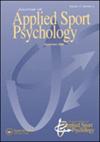是什么支持和阻碍了奥林匹克运动员的健康?:教练和组织视角
IF 2.7
2区 心理学
Q2 HOSPITALITY, LEISURE, SPORT & TOURISM
引用次数: 1
摘要
本文章由计算机程序翻译,如有差异,请以英文原文为准。
What supports and what thwarts Olympic athlete well-being?: Coach and organizational perspectives
Abstract The purpose of our study was to examine the perspectives of Olympic coaches and national performance directors regarding factors they felt influence athlete well-being (both positively and negatively), and to explore their perceived roles in contributing to the well-being of their athletes. Coaches (n = 12) and national performance directors (n = 12) participated in semi-structured interviews, that were subjected to reflexive thematic analysis. We adopted a critical interpretivist research paradigm for this study. The findings included three higher-order themes, each of which encompassed two lower-order themes. These higher-order themes included the relentless pursuit of results (i.e., lack of opportunities outside of sport, the focus on results as harmful), the influence of the coach (i.e., the coach as a relationship builder, the coach as a gatekeeper of well-being), and financial uncertainty (i.e., financial uncertainty of the program, financial uncertainty for the athlete). When taken together, the findings highlight that coaches and performance directors were often aware of threats to athlete well-being but were also uncertain how to support athlete well-being or of their role in potentially thwarting the well-being of their Olympic athletes. These findings are discussed within the broader context of the pervading culture of elite sport, and consideration for future research and knowledge mobilization. Lay summary: In this study, we queried Olympic coaches and performance directors regarding factors they felt influence elite athlete well-being, and what they felt their role is in contributing to the well-being of the athletes with whom they work. The findings within our study provide new insight into elite athlete well-being, including potential negative consequences related to the relentless pursuit of results, the impact of the coach, and the effects of financial uncertainty for Olympic athletes. Implications for Practice: The findings highlight that various threats to Olympic athlete well-being persist as a consequence of the underpinning incentive system and priorities within elite sport. The findings demonstrate that coaches and performance directors are, at times, unaware of their role in negatively influencing the well-being of the Olympic athletes with whom they work. The findings underscore that coaches and performance directors acknowledge results are prioritized over all else, but are also often unaware of how to best support the well-being of athletes with whom they work.
求助全文
通过发布文献求助,成功后即可免费获取论文全文。
去求助
来源期刊
CiteScore
6.90
自引率
9.40%
发文量
39
审稿时长
>12 weeks
期刊介绍:
The Journal of Applied Sport Psychology (JASP) is a refereed journal designed to significantly advance thought, theory, and research on applied aspects of sport and exercise psychology. Submissions such as experimental studies, qualitative research, correlational studies, case studies, position papers, critical reviews, theoretical developments specific to applied research conducted in sport and/or exercise settings, or having significant applied implications to sport and exercise, are appropriate content for the JASP. Please see the recent Editorial for further details on the aims and scope of the journal. JASP is a non-proprietary journal that is an official publication of the Association for Applied Sport Psychology (AASP). The purpose of AASP is to promote the development of psychological theory, research, and intervention strategies in sport and exercise psychology. The Journal is a direct benefit of membership in AASP and is received by its student and professional members. The publisher of the JASP is Taylor and Francis, Inc. of Philadelphia, PA.

 求助内容:
求助内容: 应助结果提醒方式:
应助结果提醒方式:


